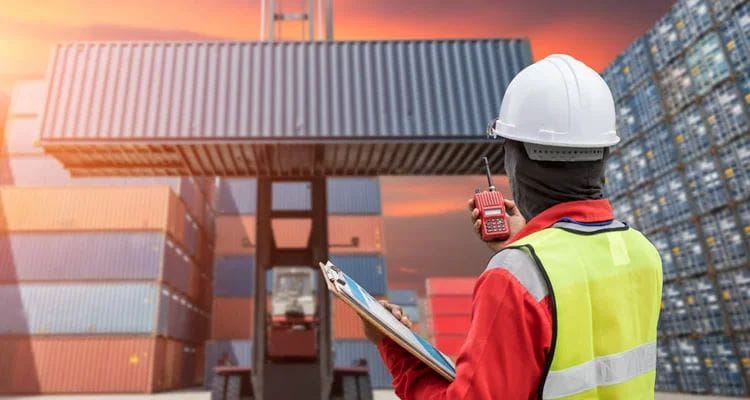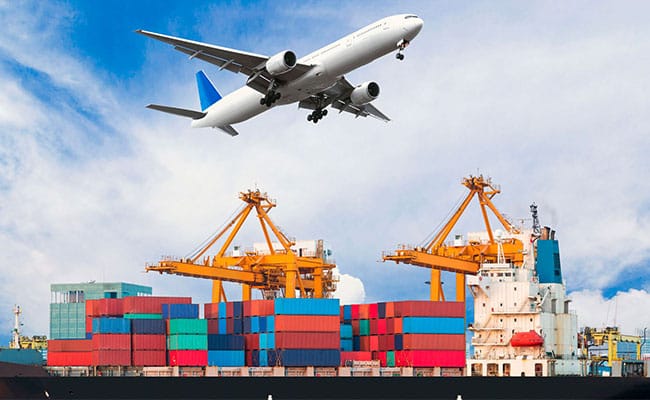Insurance plays a vital role in international cargo transportation. In the face of complex transportation environments and unpredictable risks, cargo insurance can reduce economic losses. This article will introduce the necessity of insurance in international transportation in detail.

Risks in International Trade
International trade faces a series of complex and changing risks. These risks may not only lead to loss or damage of goods, but also cause significant economic losses. The risks faced are complex and diverse, including:
- Natural disasters: such as storms, floods, earthquakes, etc., which damage transportation vehicles and goods.
- Customs issues: Customs regulations in different countries and regions are different, which may lead to extended customs clearance time or package detention
- Transport accidents: common problems such as ship stranding and cargo falling.
- Cargo characteristics issues: cargo losses that may occur during the transportation of fragile, perishable or dangerous goods.
Types and Selections of Shipping Insurance
There are many types of international transportation insurance, which can be divided into many types according to the transportation vehicles, cargo characteristics and risk types. These types of insurance include:
All Risk Insurance
All Risk Insurance is a broad-coverage transportation insurance that usually covers all risks of the goods during transportation. It is suitable for customers who need the highest protection, especially for goods with high value or risk-sensitive.
Transit Insurance
Transit insurance usually refers to insurance for loss or damage incurred during the journey of goods from the origin to the destination. This type of insurance is usually customized according to the mode of transportation of the goods (sea, air, land, etc.).
Partial Insurance
Partial insurance usually only covers a part of the risks of the goods, but not all potential risks. For example, it may only cover theft, fire or accidents, but not force majeure factors such as natural disasters or war. Suitable for customers who want to reduce insurance costs and are willing to bear a certain amount of risk.
Third-Party Liability Insurance
Third-Party Liability Insurance is insurance for damage caused to third parties (such as property or personal injury of others) during transportation. This insurance usually does not cover the goods themselves, but protects the carrier from legal liability caused by accidents or negligence.
Valued Policy Insurance
Valued Policy Insurance is a policy that predetermines the insurance amount of the goods in the insurance contract. Regardless of the actual loss amount, the insurance company will compensate according to the agreed amount. It is suitable for situations where the value of the goods is high and it is not easy to estimate through market prices.
Loading and Unloading Insurance
This insurance covers the risk of damage, loss or theft that may occur during the loading and unloading of goods. Usually, losses incurred during loading and unloading may not be covered by other conventional transportation insurance.
Why is Ship Insurance Necessary?
- Risk transfer: Loss or damage of goods during transportation may cause serious economic losses, and insurance can compensate for the losses.
- Economic protection: When the goods are lost or damaged, the insurance company can provide compensation to protect the economic interests of the cargo owner.
- Additional protection: Transport insurance can also provide additional protection, such as transportation delay insurance, cargo contamination insurance, to deal with more risks.
- Contract requirements: International trade contracts (such as CIF and CIP terms) usually require the seller to provide insurance for the goods.
Key Components of Freight Insurance Policy
It is important for future business owners to understand the nature of freight insurance, what standard coverage includes, what is not covered, how to file a claim, etc.
Coverage
- Natural disasters: Losses caused by hurricanes, tsunamis, etc.
- Transportation accidents: Fire, collision, cargo drops, etc.
- Theft and damage: Theft or damage to cargo that occurs during transportation.
- General average: General average and salvage expenses that should be shared according to general practice.
The specifics of each coverage depend on the coverage and policy type and the insurance provider
Claim Process
If a loss occurs, claiming cargo damage requires several steps. The first step is to notify the insurance company immediately if damage occurs. Then, the policy must be reviewed to see what can be recovered and what cannot be recovered. Important documents such as commercial invoices, photos and evidence of damage, repair estimates, and bills of lading should be collected. Then, the business owner will be required to fill out a claim form.
Finally, you must submit your claim and wait for a period of time for the insurance company to evaluate your claim. The insurance company may conduct an investigation, after which the insurance company will pay the compensation if the claim meets the insurance company’s standards.
Insurance Costs
Cargo insurance is not set in stone, and there are factors that can affect its cost. The size and weight of the cargo are probably the most important factors. The heavier the cargo, the more it costs to ship. So, the larger or smaller the product, and the more space it takes up in the container, will increase your insurance costs.
The insurance amount is usually the invoice value of the cargo plus the freight and a percentage of profit (such as 10%-20%).
If you are interested in information about shipping from China to different countries, you can click on the corresponding post:
- Shipping From China to USA
- Shipping From China to Saudi Arabia
- Shipping From China to UAE
- Shipping From China to Egypt
- Shipping From China to Turkey
How to Choose the Right Cargo Insurance
Choosing the right cargo insurance requires considering the following factors:
Nature of cargo
Choose the right insurance type based on the nature of the cargo, such as fragile goods, valuables, etc., which may require additional protection measures.
Means of transport
Choose the corresponding insurance according to the different means of transport, such as sea transport, land transport or air transport.
Transport route
Consider the risks and characteristics of the transport route, such as political stability and weather conditions in the passing areas.
Insurance amount
Determine a reasonable insurance amount based on the value of the cargo and the risks it may face.
Compare insurance providers
After evaluating your insurance needs, you must choose an insurance provider. Not all cargo insurance providers offer the same coverage. Get quotes from multiple insurance companies to compare prices and policy details.

Insurance Precautions
When purchasing international transport insurance, you need to pay attention to the following points:
- Learn the insurance terms in detail: Read the insurance contract and terms carefully to understand the insurance liability, exemption clauses, etc.
- Ensure that the cargo information is true and accurate: Provide true information on the type, quantity, packaging and transportation method of the cargo to avoid affecting the claim due to incorrect information.
- Keep transportation records: Provide relevant documents and documents such as invoices, bills of lading, packing lists, etc. according to the requirements of the insurance company.
- Make claims in time: When the cargo is lost or damaged, make a claim to the insurance company in a timely manner and provide necessary supporting documents.
In international trade, insurance is an important means to protect goods and reduce risks. Through this article, you can understand the terms and restrictions and purchase insurance in time to effectively avoid potential risks. If you have further needs for cargo insurance, please contact us!
